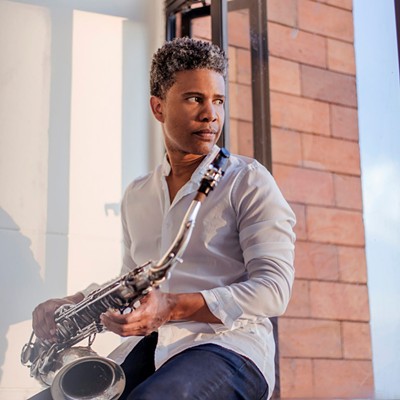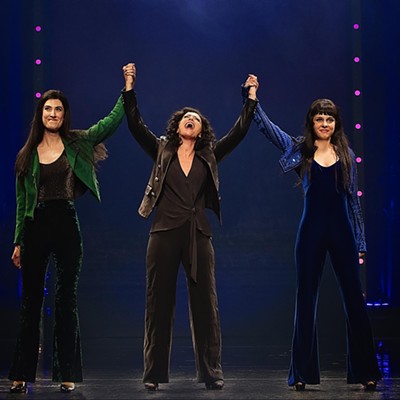There's been a kind of death watch for Kwanzaa, mostly coming from right-wing media circles and just plain ignorant people over the past few years. And those right-wing pundits be damned about the growing inclusivity of the holiday. Yes, white people are more than welcome to celebrate. At least that was the message given at a Kwanzaa celebration in the Third Ward last week.
Estimates from the National Retail Federation say that close to 5 million people in the U.S. celebrate Kwanzaa. That's about 1.6 percent compared with the close to 95 percent who celebrate Christmas, or the 6 percent who celebrate Hanukkah.
So, is Kwanzaa a growing holiday that we need to recognize?
Put the word into the Twitter search field and you'll see plenty of support for the holiday. If you take social media's word for it, Kwanzaa celebrations are probably growing.
But who really knows at this point. What's clear is that there are several camps when it comes to Kwanzaa. There are the folks who hate Kwanzaa because it was created by an alleged FBI informant, Maulana Karenga, who may have played a role in helping bring down the Black Panther Party. There are the folks who think it's the most made-up thing since the Tooth Fairy, so why bother getting all Afro-centric the last few days of December.
And then, there are those who feel Kwanzaa is a necessary community-building experience and time for reflection for people of African descent (Which, technically is all of us, right?).
Kwanzaa is approaching 50 years old, yet so many still scoff at the Pan-African holiday. That's understandable. I'm not one to promote Kwanzaa. Never was very interested in what a lot of people think of as black Christmas. And maybe that's because Kwanzaa doesn't have the symbolism that all the other holidays have.
There are symbols, though, but they're pretty lengthy, and buying presents from Target don't really sum them up. The seven principles of Kwanzaa, recognized and celebrated each day following Christmas are umoja (unity), kujichagulia (self-determination), ujima (collective work and responsibility), ujamaa (cooperative economics), nia (purpose), kuumba (creativity) and imani (faith).
New Year's Day marks the last day of Kwanzaa's seven days, represented by Imani. It's also a time to reflect and meditate.
That all sounds pretty useful, and not just as an African-American thing. So why do people still knock Kwanzaa? My dad hates the holiday, and he's one of the most "power-to-the-people" types you'd ever meet. You can't change the past, but maybe looking forward, Kwanzaa will move beyond what might seem like a holiday tacked onto the end of the year just to support black pride.
In Houston, a handful of celebrations kicked off the event. Some of those took place in private corners of the city and others in more public spaces, such as the Project Row Houses-sponsored event. That one in particular was a gathering of about 20 people next to a bonfire in the parking lot of the NuWaters Co-op in the Third Ward.
The gathering was aimed at younger participants, but included the spill-over from a Kwanzaa market just a few blocks away. Gale Waden, a grants manager with Project Row Houses, a local arts nonprofit, led the event. It was Kwanzaa 101 for a lot of people. Libation was poured for people who had passed and ancestors remembered, and candles burned in honor of Kwanzaa. People were offered free lentils poured into heaping bowls, a celebratory food for the holiday.
The affair seemed small, but was just one of many happening in cities around the country.
If you're thinking about getting into Kwanzaa next year, just remember, the doors are open.
"We know the neighborhood is changing," Waden said about the Third Ward and its gentrification. "We want to engage everyone in the community."






